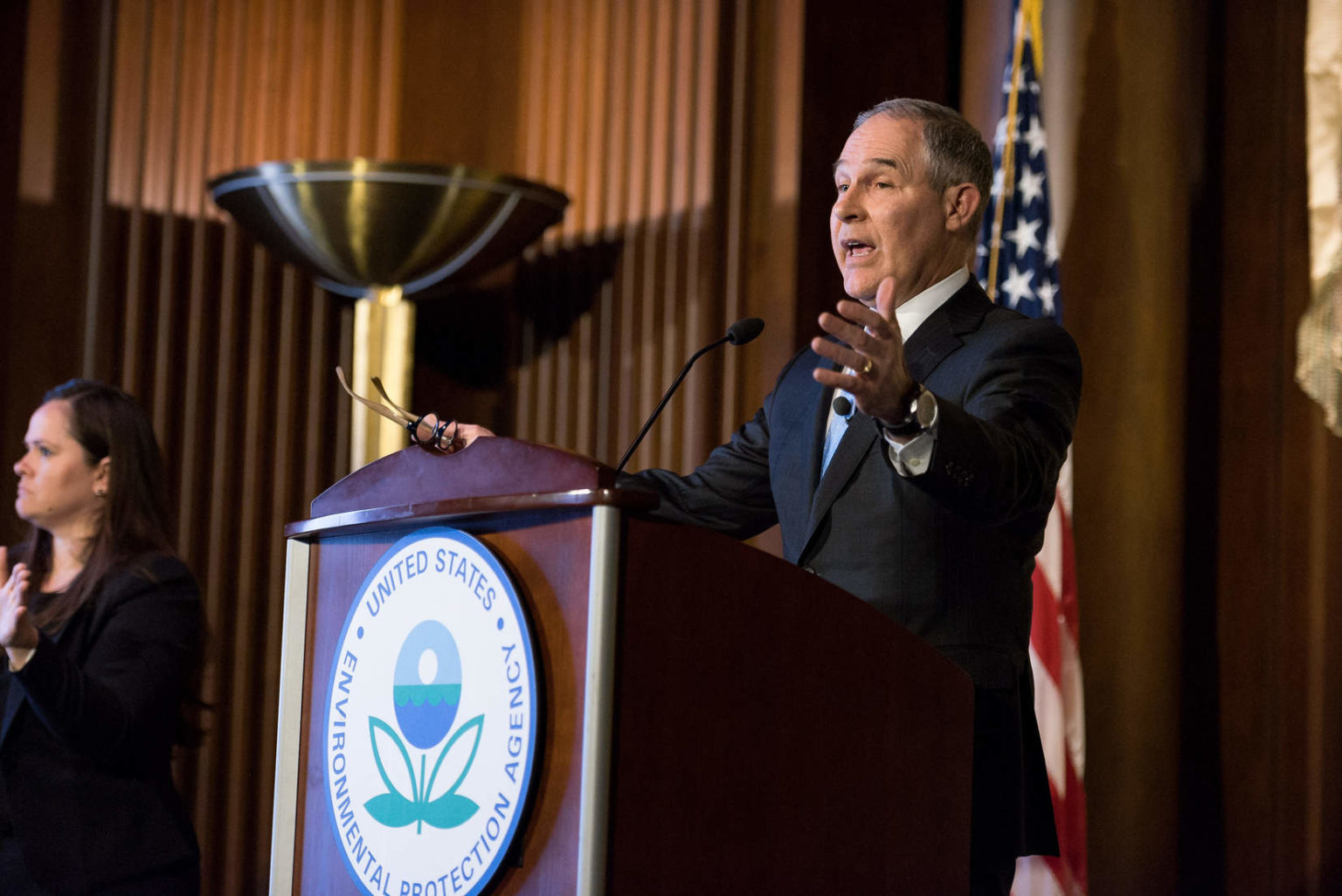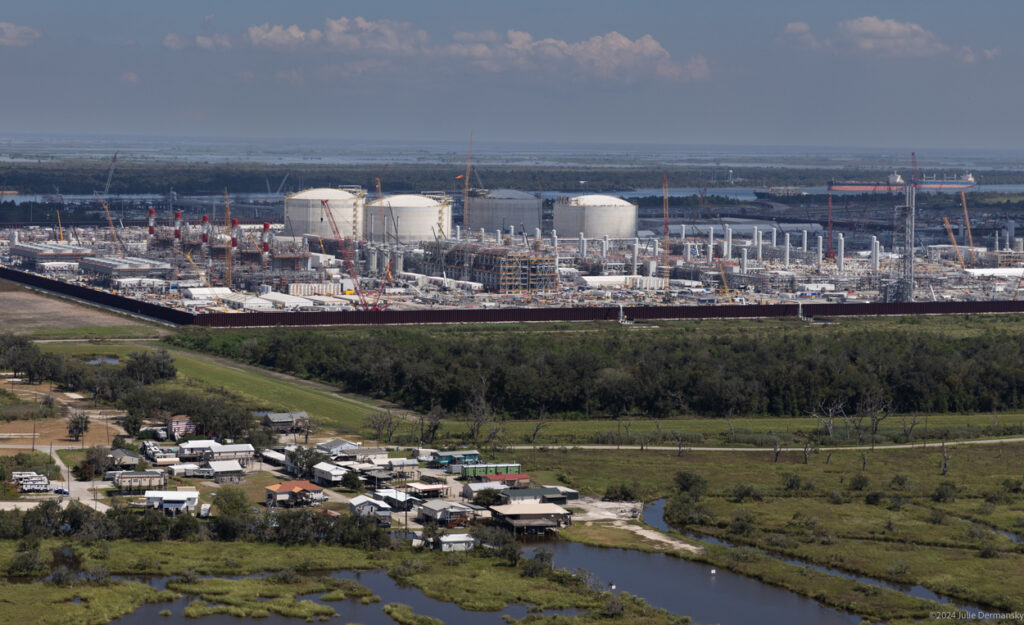The Environmental Protection Agency’s chief, a science skeptic with a taste for luxury goods, entered office hellbent on slashing government red tape — but slowly became embroiled in scandal over alleged mishandling of government funds amid extraordinary efforts to keep the activities of a public agency secret.
Not Scott Pruitt, the Trump administration’s current EPA chief: Anne Gorsuch Burford, who ran the EPA under Reagan from 1981 to 1983, and resigned after being cited for contempt of Congress following a scandal involving document shredding, secrecy, and the Superfund.
A year into Pruitt’s tenure at EPA, some of the parallels between the two are striking.
Burford (mother of Neil Gorsuch, the Trump-appointed Supreme Court justice) came into office in the early 1980s a fierce critic of government regulation, openly antagonistic to environmental laws and the EPA‘s core mission, bragging that she’d slash clean water regulations down from a six-inch stack to one just a half-inch tall. During her time at EPA, its budget dropped nearly a quarter and, as The New York Times once wrote, she “caused a hemorrhage of its best professional staff.”
Pruitt similarly is known for his hostility to the EPA long before he took office. In January, he touted cutting EPA‘s staffing to “Reagan-era” levels and hung posters around EPA celebrating plans to scrap the Clean Power Plan (Mother Jones compiled a long list of Pruitt’s regulatory rollbacks in areas including: pollution from the oil, gas, and chemical industries; greenhouse gases; pesticides; and smog).
They both slowed the EPA‘s efforts to enforce America’s environmental laws. During Burford’s first year, enforcement actions fell 60 percent. For his part, Pruitt has overseen a halving of civil penalties and fines for polluters during his first year, and once inflation is accounted for, penalties on Pruitt’s watch have been up to 68 percent lower than under previous administrations.
While Pruitt’s science skepticism extends to both climate change and evolution, Burford is best remembered for her rejection of the science on tobacco, once famously smoking Marlboro cigarettes during a meeting with environmentalists on carcinogens. Burford, who died of cancer at age 62, was a two-pack-a-day smoker when she ran Reagan’s EPA.
Pruitt’s climate skepticism took on a similar indifference to risks when he recently questioned whether climate change is “necessarily a bad thing.” In a February 6 television interview, he asked: “Do we know what the ideal surface temperature should be in the year 2100 or the year 2018? It’s fairly arrogant for us to think we know exactly what it should be in 2100.”
(For the record, scientists predict that climate change will bring with it sea level rise that could leave cities and entire nations underwater, severe storms, drought, wildfires, wildlife extinctions, and a long list of other harms).
Burford’s taste for luxury goods remains a memorable part of her public image — she’s often described as favoring fur coats; for Pruitt, it’s first-class travel (the difference being that Pruitt’s airborne extravagances are on the taxpayers’ dime).
Keeping the Public Out
Both Burford and Pruitt have made headlines for their approach to secrecy at the EPA. Burford famously refused to hand over Superfund records to Congress, at the direction of President Reagan. The agency later admitted it had shredded documents in a scandal that ultimately cost Burford her job.
She remained brazenly unrepentant. In 1982, immediately after being cited for contempt and facing the possibility of up to a year in jail, Burford told reporters: ”What happened tonight, if pursued to its conclusion, wouldn’t do anything. It would not produce the documents, it would not decide the issue of separation of powers. It would only send me to jail for a much-needed rest.”
While Pruitt isn’t accused of shredding documents or potentially criminal activity, his approach to government transparency ranges from simply hostile to downright bizarre.
Federal law requires EPA to allow the public to access many EPA records — but Pruitt’s EPA has left 94 percent of Freedom of Information Act (FOIA) requests still waiting for processing, an analysis by the Project on Government Oversight revealed last month.
“The FOIA process isn’t optional,” Sen. Tom Carper wrote in an email to Politico, responding to those findings. “The American people are entitled to know what government officials, including Mr. Pruitt, are doing with their time and taxpayer money.”
A record number of lawsuits have been filed against Pruitt’s EPA over its response (or non-response) to FOIA requests, with 46 lawsuits launched in 2017, more than double the previous record. While the EPA has blamed a backlog left by the Obama administration for delays, watchdogs say that Pruitt’s EPA has refused to make public information that’s normally readily available, like the Administrator’s schedule and travel records, forcing journalists to file FOIA requests to access basic information.
Watchdog groups are also pursuing a lawsuit against Pruitt’s EPA for failing to keep records required by law. In one case, EPA said it had kept no notes on its deliberations as it wrote a roughly 36-page report on recommendations for the Superfund program, which the groups argue violates public record-keeping laws.
Pruitt’s personal secrecy and security measures are even more unusual. In September, the Washington Post reported that Pruitt spent $25,000 in taxpayer money on a “secure, soundproof communications booth.” He dropped another $15,780 on high-tech locks and alarms for his office (prior agency chiefs say they kept their doors unlocked). But it’s his personal security detail and his first-class flights that have run up the costliest tab for American taxpayers.
Pruitt took members of EPA‘s law enforcement team — formerly chasing criminal polluters — and turned them into his own personal round-the-clock security detail. He brings them with him on his travels both domestic and international. Other recent EPA chiefs have used security details when they traveled, but the 24-hour team is a first. Pruitt has argued that his first-class flights are for unspecified “security” reasons (Time headlined its coverage: “EPA Head Says He Needs to Fly First Class Because People Are Mean to Him in Coach”).
It’s not just the airfare that’s expensive for taxpayers. An E&E investigation found that Pruitt’s security detail ran up a tab of $832,735.40 in salary and travel costs — in just three months.
His security expenses have also raised ethics concerns. On Tuesday, Senators Sheldon Whitehouse (D-RI) and Tom Carper (D-DE) wrote to the EPA, demanding documents related to a contractor hired to sweep Pruitt’s office for electronic surveillance and describing their concern that the $3,000 contract may have breached federal conflict of interest rules.
Superfund
Government secrecy isn’t only worrisome because, at least in theory, a democracy should be answerable to the people — the information that U.S. agencies hold can be extremely valuable.
In February, Ryan Zinke’s Interior Department lost two senior U.S. Geological Survey officials after they resigned, citing a request by Zinke for confidential and commercially valuable oil and gas data before it was publicly available. “These assessments have the potential to move markets in a big way,” Kate Kelly, a former Interior Department official, told Mother Jones.
Which brings us back to the Superfund program, which is tasked with cleaning up America’s most polluted sites and last year had a budget of $1.1 billion in appropriations. The program also has been hit with a series of scandals on Pruitt’s watch.
In January, an Associated Press investigation found that Pruitt’s EPA had been lauding cleanups at seven contaminated sites as Trump-era successes — but that the actual work at those sites had been “completed years before Pruitt was confirmed as the agency’s chief.” The program is run by Albert “Kells” Kelly, a close friend of Pruitt and, as The Intercept reported in December, a banker who was banned for life from the banking industry. Kelly came under fire last month over his investments in fossil fuel companies, including Phillips 66, which is partly responsible for cleanup of Superfund sites in Oregon and Louisiana.
Under Burford, Superfund became one of EPA‘s most controversial programs for very different reasons. Democrats suspected that her EPA was only funding clean-up work in districts where Republicans were up for re-election. With Reagan’s backing, Burford refused to hand over Superfund documents to Congress, claiming executive privilege and touching off a major battle between the branches of government.
A look back at history highlights the importance of the House of Representatives in preventing public corruption by agency heads. In late 1982, Burford became the first cabinet-level official ever cited for contempt of Congress, after she refused to turn over Superfund documents that the House had demanded. She resigned roughly three months later (an event followed by more scandal over whether Reagan’s Justice Department had improperly refused to pursue jail time or a fine against its former EPA chief).
This week, an effort by House Democrats to bar Pruitt from flying first class was blocked by Congressional Republicans. But if control of the House shifts following mid-term elections, it’s likely Pruitt would face a less friendly Congress as his second year at the EPA concludes.
Burford’s legacy at EPA not only included a Colorado Superfund site that likely was prevented from receiving funding for cleanup due to political reasons, but also a mass resignation of roughly 20 EPA officials caught up in the scandals. One of her subordinates wound up serving a six month sentence for perjury.
It’s still too early to know whether any parallels between Pruitt and Burford will continue — it’s entirely possible that Pruitt could be cleared in the ongoing investigations and prevail in the lawsuits against his agency. The Trump administration also brings a level of unpredictability unmatched in the Reagan era.
But if Pruitt continues along the path Burford blazed, he may not like where that trail leads.
Main image: EPA Administrator Scott Pruitt Credit: U.S. Environmental Protection Agency, public domain
Subscribe to our newsletter
Stay up to date with DeSmog news and alerts







